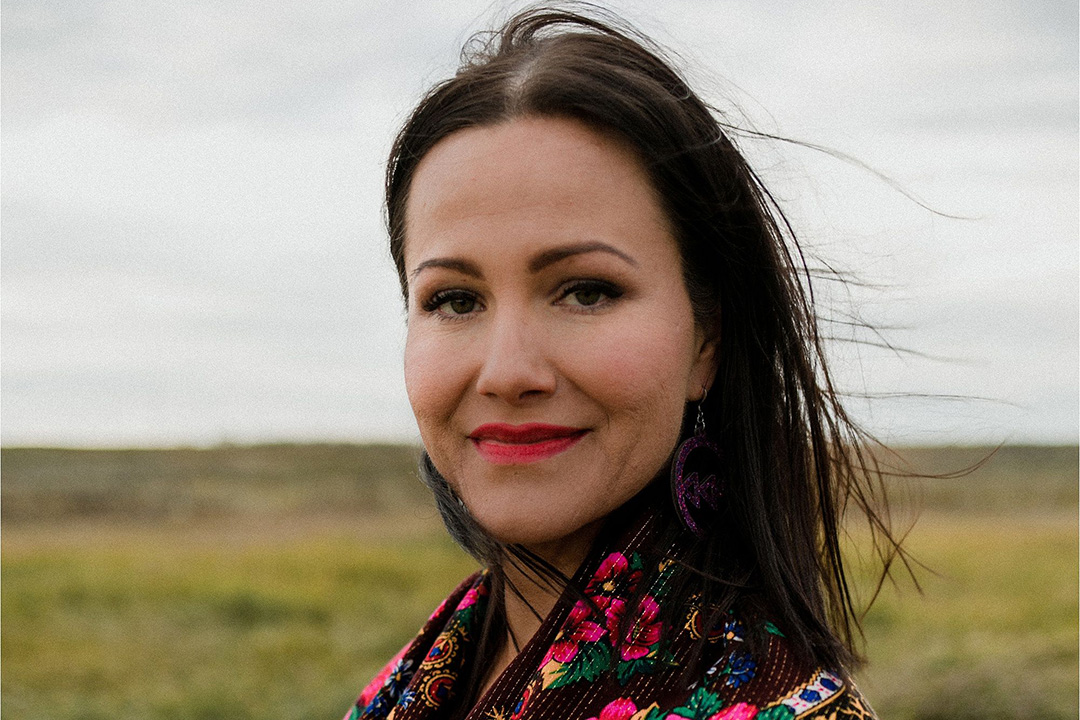
Rhyme and reason: Indigenous Storyteller-in-Residence a first at USask
At 13 years old, Lindsay Knight discovered the lyricism and storytelling of hip-hop music.
By Sean Conroy“I have always been a storyteller through the written word,” the University of Saskatchewan (USask) graduate student recalled. “When I discovered that you could create a poetic flow over a smooth beat, I was hooked. And I still am to this day.”
In addition to the sound and swagger of the genre, Knight identified with the sadly familiar characteristics of the racial inequalities chronicled by hip-hop’s Black and Hispanic founding storytellers.
“There are so many parallels to Indigenous experience when considering colonial violence in the forms of racism, poverty, police violence,” said Knight. “Through identifying with the similar realities of struggle and survival, hip-hop culture was adopted by Indigenous people.”
Nine albums and several accolades later under the moniker Eekwol, Knight has harnessed her passion for connecting with audiences and sharing her personal experiences.
The latest outlet for Knight’s creativity has been her recently completed term as the University Library’s first Indigenous Storyteller-in-Residence at USask.
In December, the library announced the pilot project introducing the position. The program, the first of its kind at USask and in the province, is a natural evolution of the library’s commitment to sharing and supporting Indigenous worldviews.
“It is important that we never lose sight that we’re on Treaty 6 Territory and the Homeland of the Métis,” said Charlene Sorensen, acting dean of the University Library. “Our sense of place is essential to USask’s identity. Welcoming Lindsay to the library in this capacity to uplift Indigenous voices and lead important discussions with students is vital to the university’s Indigenization efforts.”
Knight is not only an artist, but also an academic. She earned a master’s degree in Indigenous Studies at USask and is currently a PhD student in the Department of Indigenous Studies. She recently completed a Canada Council for the Arts-granted project titled, For Women by Women, which examines Indigenous women in hip-hop. Knight is also a recipient of the University of Saskatchewan Aboriginal Graduate Scholarship.
“Much of my work reflects my identity as a half-nehiyaw (Cree) woman born and raised in the city,” said Knight. “Yet, I’m still very connected to my land-based practices through my family and community of Muskoday First Nation. As with any Indigenous person today, there is no avoiding intergenerational trauma from colonial institutions like residential schools and reserve systems, so these personal struggles also come out in my work.”
One of the signature components of the Indigenous Storyteller-in-Residence pilot program is creating and promoting intercultural understanding and story-sharing between and among Indigenous and non-Indigenous people. Knight’s residency facilitated this conversation through virtual coffee talk events with USask students via Zoom. She also participated in conversations within the library and these have also sparked some intercultural understandings within a University Library context.
The conclusion of her six-week residency was marked by a performance during USask’s Indigenous Achievement Week in which she performed original songs, detailing the story and inspiration behind them, highlighting the theme of cultural identity.
Although her term as the Indigenous Storyteller-in-Residence has concluded, Knight is encouraged by the storytelling sessions she has led and hopes they will be a catalyst for advancing conversations surrounding Indigenization.
“This experience has reminded me that we are all storytellers in our own way because we all have something interesting to share,” she said. “These events have created the good vibes I was hoping for and the topic of cultural identity has been super insightful.”

